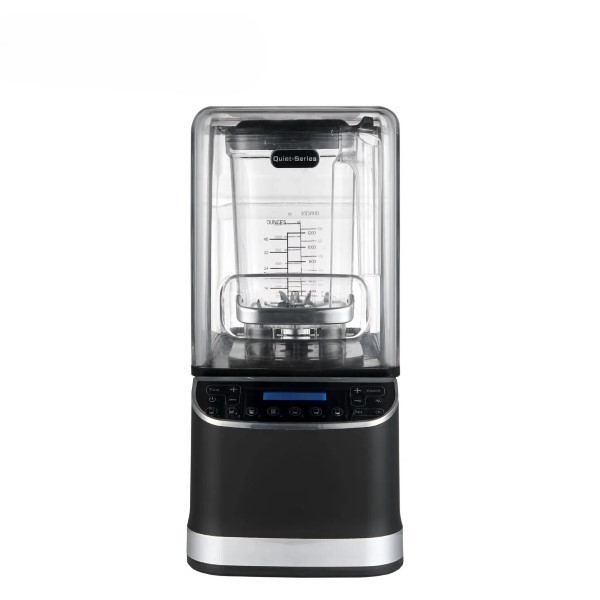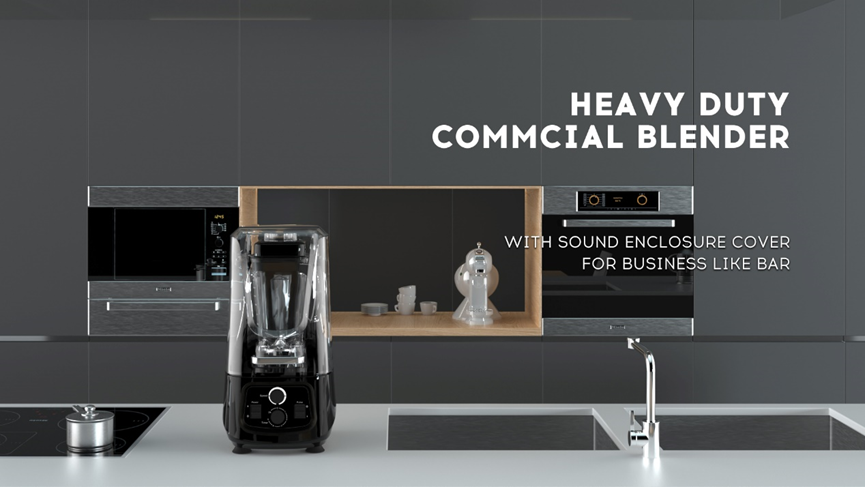Essential Guide: How to Clean and Maintain Your Heavy Duty Juice Blender for Optimal Performance
release time:
2025-06-28
How to Clean and Maintain Your Heavy Duty Juice Blender
In today's fast-paced culinary world, a heavy-duty juice blender is an indispensable kitchen appliance. Not only does it help us whip up delicious smoothies, sauces, and soups, but it also promotes a healthier lifestyle by allowing us to enjoy nutrient-packed beverages with ease. However, to keep your blender performing at its best, it’s crucial to implement a proper cleaning and maintenance routine. In this article, we will guide you through the essential steps needed to clean and maintain your heavy-duty juice blender effectively.
Table of Contents
- Understanding Your Heavy Duty Blender
- The Importance of Cleaning Your Blender
- Essential Tools for Cleaning Your Heavy Duty Juice Blender
- Step-by-Step Cleaning Process
- Deep Cleaning Your Blender: When and How
- Maintenance Tips for Your Heavy Duty Juice Blender
- Common Issues and Solutions
- Frequently Asked Questions
Understanding Your Heavy Duty Blender
Heavy-duty blenders are engineered for high performance, capable of blending tough ingredients, including hard fruits and vegetables, ice, and even nuts. These machines boast powerful motors, sharp blades, and robust construction, making them a favorite among both home cooks and professional chefs. Familiarizing yourself with the design and components of your blender will help in its maintenance and cleaning.
The Key Components of a Heavy Duty Blender
- Motor Base: The powerful engine that drives the blending process.
- Jar: The container where you place your ingredients; it comes in various sizes and materials.
- Blades: Sharp, robust blades that are responsible for chopping and mixing.
- Lid: Often equipped with a vent to release steam, ensuring safety while blending.
- Control Panel: Offers various settings and speeds for blending different ingredients.
The Importance of Cleaning Your Blender
Regular cleaning of your heavy-duty juice blender is vital for several reasons:
- Food Safety: Residue from previous blends can harbor bacteria, which may contaminate future recipes.
- Flavor Integrity: Any leftover ingredients can negatively impact the flavor of your next smoothie.
- Longevity: Preventative maintenance helps avoid wear and tear, keeping your blender in optimal condition.
- Performance: A clean blender operates more efficiently, producing smoother blends in less time.
Essential Tools for Cleaning Your Heavy Duty Juice Blender
Equipping yourself with the right tools makes the cleaning process smoother and more effective. Here are some essential items you’ll need:
- Dish Soap: A mild detergent to cut through grease and grime.
- Warm Water: Helps dissolve food particles and residue.
- Soft Cloth or Sponge: For gentle cleaning without scratching surfaces.
- Brush: A bottle brush can be particularly useful for hard-to-reach areas.
- Baking Soda and Vinegar: Natural cleaners that can tackle tough stains and odors.
Step-by-Step Cleaning Process
Cleaning your heavy-duty juice blender after each use is key to maintaining its performance. Follow this straightforward process:
1. Disassemble the Blender
Start by unplugging the blender for safety. Remove the jar from the motor base and detach the lid. If your model allows, carefully remove the blade assembly.
2. Rinse the Jar and Blades
Immediately rinse the jar and blades under warm water to help remove leftover food particles. Avoid soaking the blades in water for too long, as this can dull their sharpness.
3. Clean the Jar
Using a few drops of dish soap and warm water, fill the jar halfway. Secure the lid and blend on high for 30 seconds. This method effectively cleans the interior.
4. Scrub the Exterior
With a soft cloth or sponge, wipe down the exterior of the motor base and the jar. Be cautious around the control panel and any electrical components.
5. Rinse Thoroughly
After blending with soapy water, rinse the jar and blades thoroughly under running water to ensure no soap residue remains.
6. Dry and Reassemble
Leave the jar and blades to air dry completely before reassembling. Wipe the motor base with a dry cloth to prevent any moisture damage.
Deep Cleaning Your Blender: When and How
Occasionally, your heavy-duty juice blender will require a deeper cleaning to remove stubborn stains and odors. Here’s how to do that:
1. Baking Soda and Vinegar Method
For deep cleaning, fill the blender jar halfway with warm water, add a tablespoon of baking soda, and a splash of vinegar. The fizzing reaction will help lift grime. Blend on high for 30 seconds, then rinse thoroughly.
2. Soak the Components
If there are persistent stains, soak the jar and blades in a mixture of warm water and dish soap for about 30 minutes before rinsing thoroughly.
3. Stain Removal
For tough stains that remain, make a paste of baking soda and water and apply it to the stained areas. Let it sit for 15 minutes before scrubbing gently with a sponge.
Maintenance Tips for Your Heavy Duty Juice Blender
Besides regular cleaning, follow these maintenance tips to enhance the lifespan of your heavy-duty juice blender:
1. Avoid Overloading
Respect the maximum capacity of your blender to prevent strain on the motor and blades.
2. Use the Correct Settings
Familiarize yourself with the various speed settings and use them according to the ingredients you are blending for optimal results.
3. Check for Wear and Tear
Regularly inspect the blades for dullness and the jar for cracks. Replacing these components promptly can prevent damage to the entire unit.
4. Store Properly
When not in use, store your blender in a dry, cool place, preferably with the jar inverted to avoid collecting dust.
Common Issues and Solutions
Even with proper cleaning and maintenance, you may encounter issues with your heavy-duty blender. Here are some common problems and their solutions:
1. Blender Is Not Turning On
Check that it is plugged in and the outlet is functioning. If it still doesn’t work, the motor may need professional repair.
2. Blades Are Not Spinning
Ensure the jar is properly seated on the motor base. If the blades remain stationary, there might be a blockage or a mechanical fault.
3. Strange Noises During Operation
Unusual sounds may indicate that something is stuck in the blades. Stop the blender and check for obstructions.
Frequently Asked Questions
1. How often should I clean my heavy-duty juice blender?
It is best to clean your blender after every use to maintain hygiene and performance.
2. Can I put my blender jar in the dishwasher?
Check the manufacturer’s guidelines. Many blender jars are dishwasher safe, but blades generally should be hand washed.
3. What should I do if my blender starts to smell?
Clean the blender immediately using the baking soda and vinegar method to remove lingering odors.
4. How can I sharpen the blades of my blender?
Most blades cannot be sharpened and should be replaced if they become dull. Check your model’s specifications.
5. Is it safe to use ice in my heavy-duty blender?
Yes, heavy-duty blenders are designed to handle ice and frozen ingredients, but always adhere to the manufacturer's guidelines on maximum capacity.
Conclusion
Maintaining and cleaning your heavy-duty juice blender is essential for ensuring its longevity and performance. By following the detailed steps outlined in this guide, you can keep your appliance in pristine condition while enjoying delicious, healthy juices and smoothies. Remember, a well-cared-for blender not only enhances your culinary experience but also contributes to a healthier lifestyle. Invest time in proper cleaning and maintenance, and enjoy the benefits of this remarkable kitchen tool for years to come.
More information






